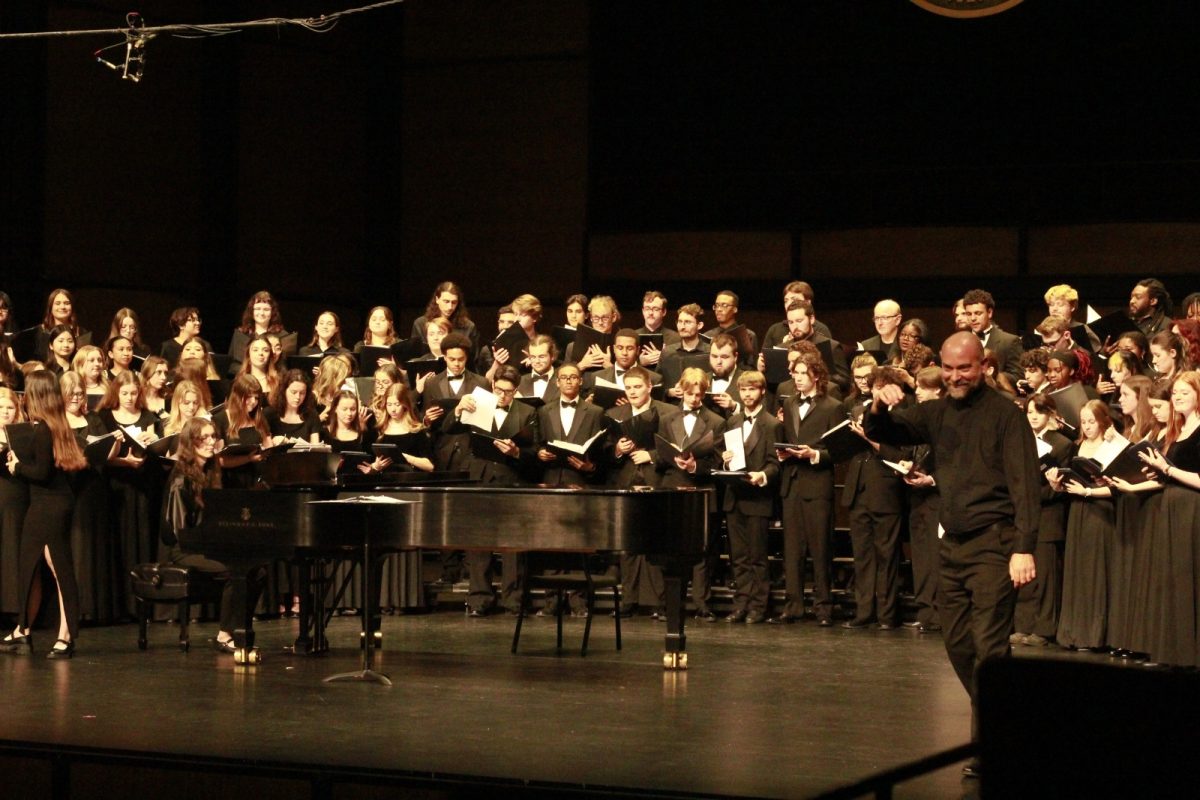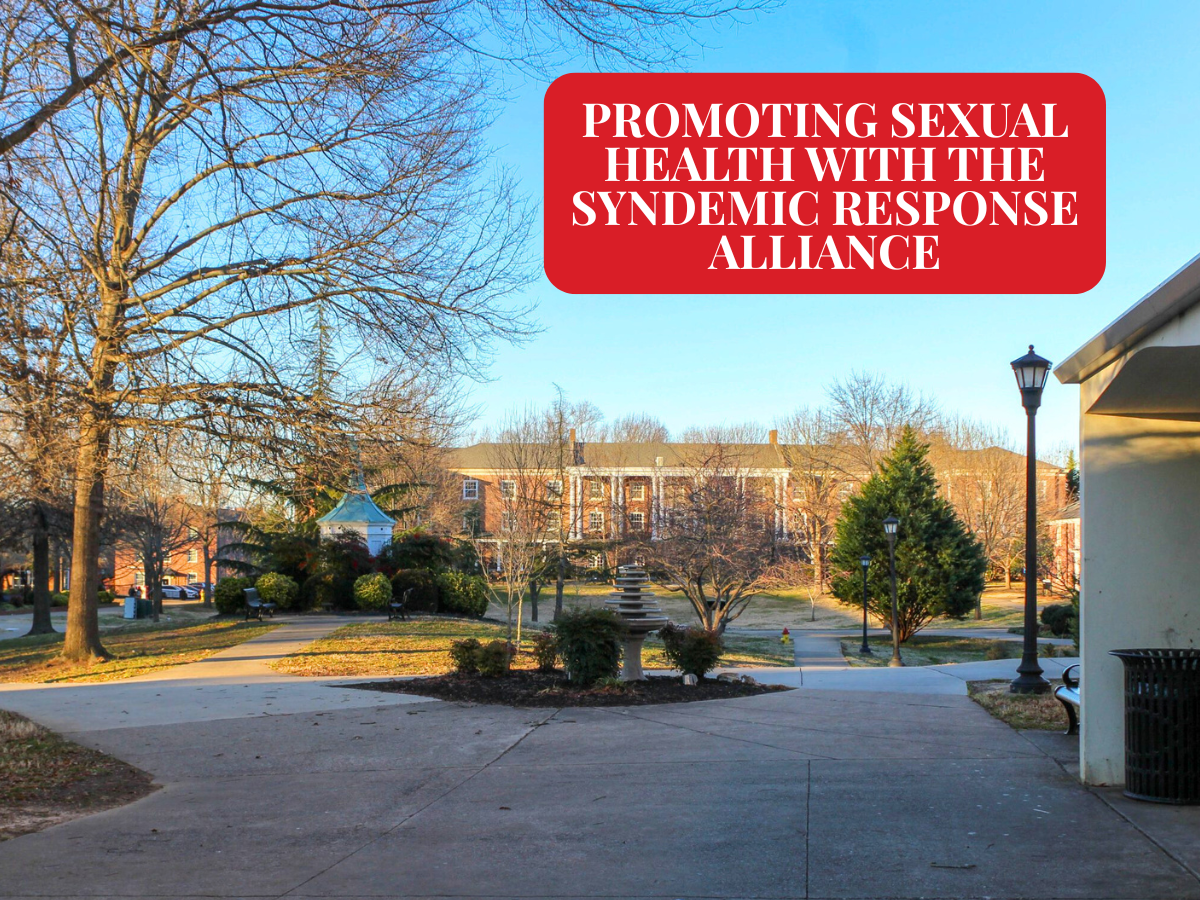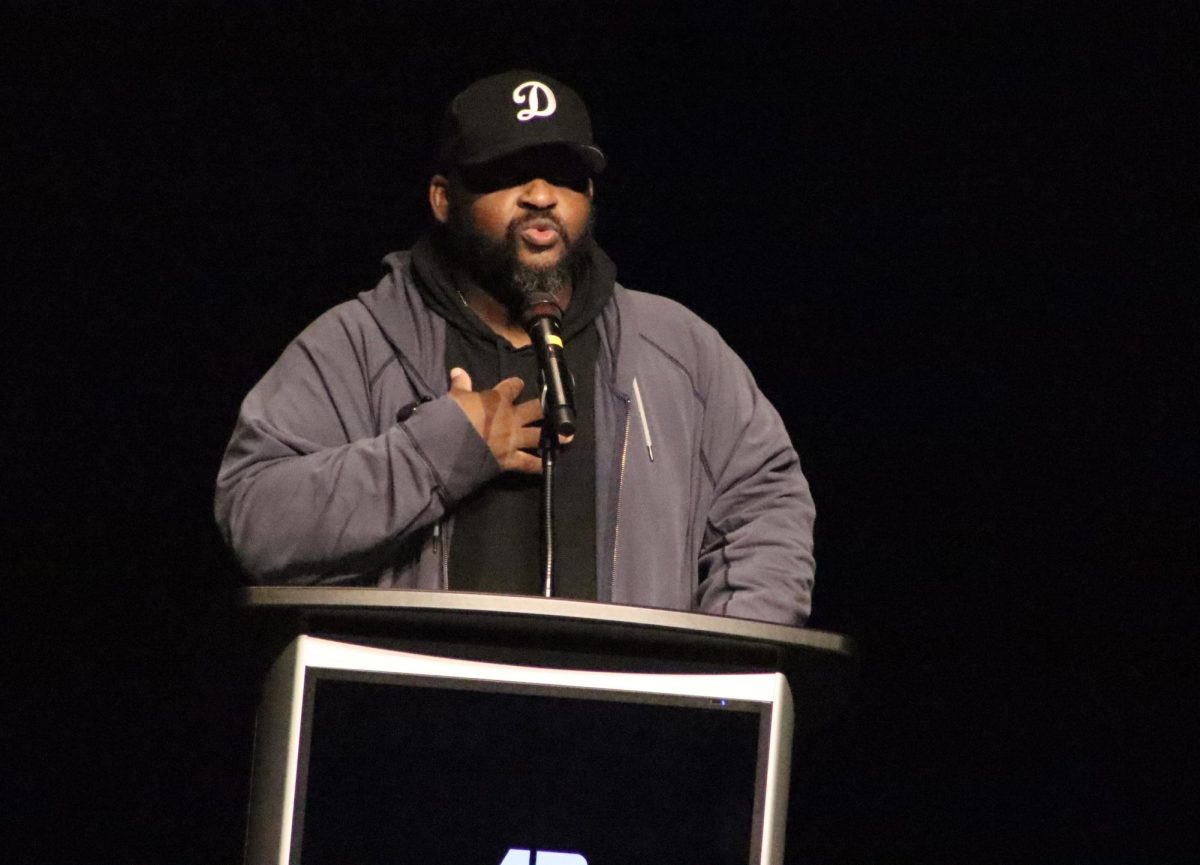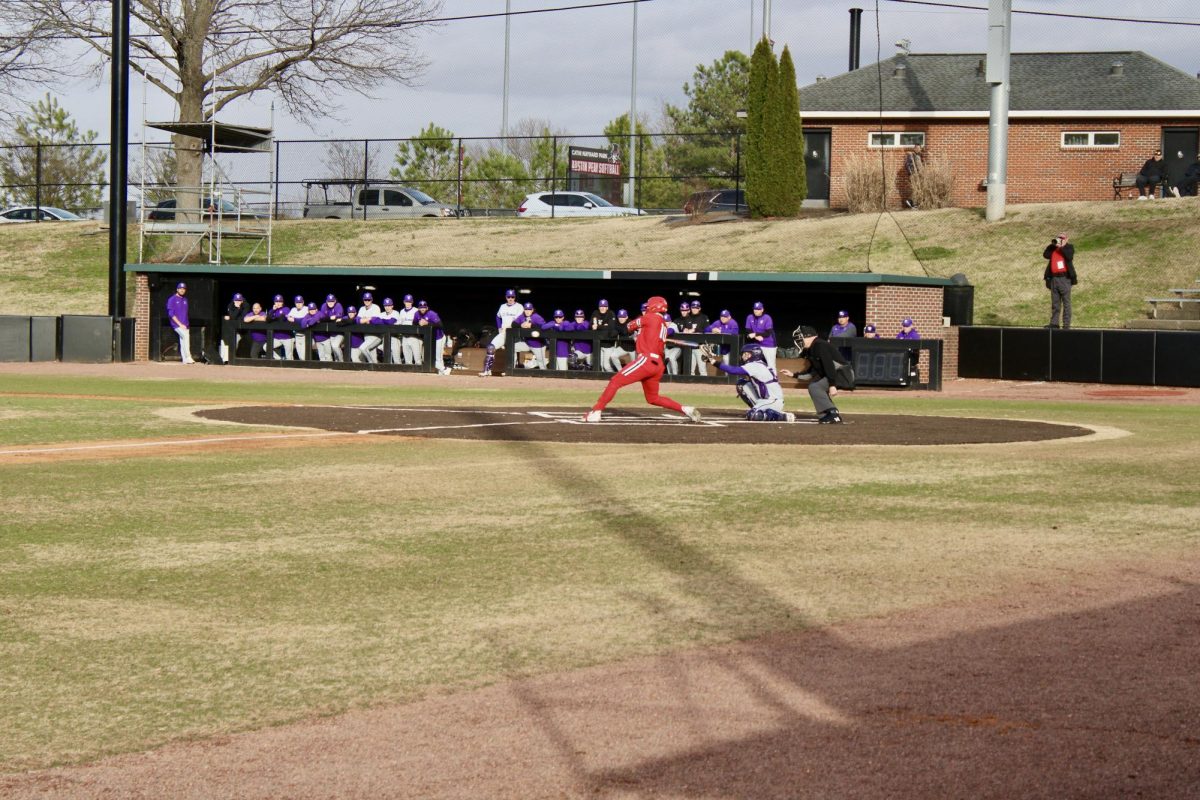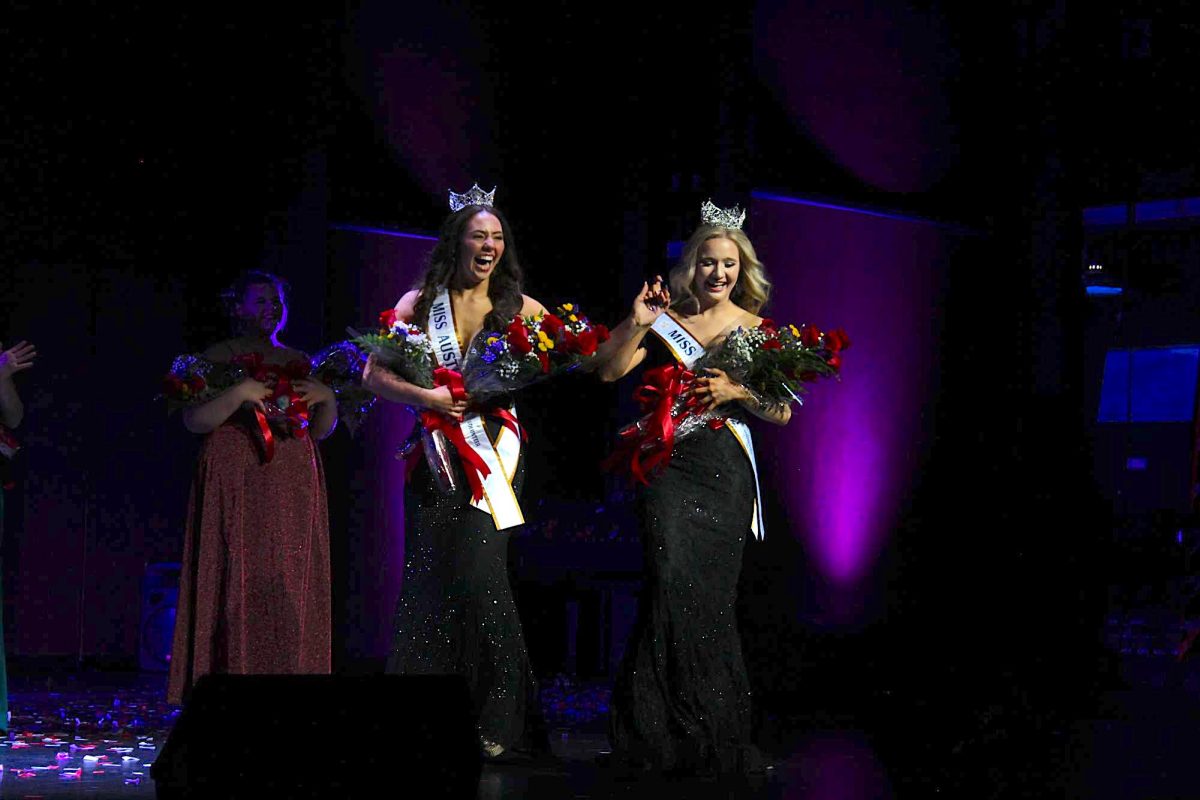APSU’s 11th President Michael Licari began his tenure at a precarious time.
APSU, like universities across the nation, is facing a challenging year as the COVID-19 pandemic continues to alter campuses, and life, as we know it.
PRIORITIES
“Coming in at the middle of the semester is always a little bit different. Then, coming in in the middle of a semester in the middle of a pandemic is five times as different,” Licari said.
During this challenging time, Licari has had to balance his priorities, determining what to do first on his long list of presidential duties. In the end, he feels making connections, particularly to the student body comes first.
“So, as with any new position, I think especially with the one that I have here, it’s getting to meet people and it’s building those relationships right off the bat. That’s a little bit more challenging to do coming in midstream in a couple different ways, because universities have a certain rhythm to things,” Licari said. “There’s a start point and an endpoint kind of naturally at the beginning and end of each semester, academic year, things like that. So, when you come in midstream it’s sometimes a little bit challenging. Although, there are good opportunities too because things are already rolling. So, all I need to do is slip right in.”
Outside of forging those connections, Licari has a few other top priorities,
“In terms of priorities it’s meeting people, it’s navigating the rest of COVID for the university and the community, it’s getting a good hard look at enrollment. There’s kind of a confluence of things going on right now,” Licari said.
ENROLLMENT
Due to the COVID-19 pandemic, APSU saw a drop in enrollment, but Licari hopes that with his background in enrollment he will be able to help steer the university towards improving those numbers.
“At Indiana State, the enrollment portion of the university was moved into my area several years ago. So, I got several years of direct experience with enrollment,” Licari said. “One way or another, whether it’s recruiting students or keeping existing students going through to finish their degree, it’s something that I’ve been working on in some capacity for more than a decade.”
Licari hopes that as the vaccine rollout moves forward and safety protocols continue to be enforced APSU will hopefully be able to move towards a greater sense of normalcy.
“I think that’s what students have looked for. Hopefully, we can get some of those students that sort of took a ‘wait and see’ attitude to starting their college experience to get going and come and visit and enroll,” Licari said.
University officials have already announced that they intend for APSU to return to predominantly face-to-face classes this fall. While this may encourage some new students to enroll Licari says enrollment itself is a slow process.
“Enrollment is this weird blend of urgency and patience. You need to feel a sense of urgency so that you get to the work, and there are some short-term things you can do to recruit new students quickly, but the real fundamentals of enrollment take some time,” Licari said.
COVID-19
As the COVID-19 pandemic continues across the globe, Licari says students can expect the safety protocols in place at APSU to remain consistent.
“I think for the rest of the spring semester students probably ought to expect things to stay the same. Changing in the middle of a semester is always a little bit difficult anyway, but quite frankly, although the vaccine is being rolled out and our own vaccination center on campus is adding to that positive story, the reality is that things aren’t going to be changing enough, and quickly enough, in order to be able to back off of the protocols that we have in place for the rest of the academic year and probably throughout the summer,” Licari said.
DIVERSITY
Licari says the diversity of APSU’s student body is one of the things that first attracted him to the position of president.
“The diversity of the student body at my previous institution is very close to the diversity of the student body here at Austin Peay. So, that means that the university needs to be structured in a certain way, needs to be deploying resources in a certain way, needs to have a certain kind of approach to ensuring that all of our students can be successful,” Licari said. “That’s what really is meaningful to me, is energizing to me is we have students from all sorts of backgrounds. The point is that they all need a shot at a college education, and that’s great. That’s a wonderful mission for us to have.”
In his approach to leadership Licari sees diversity as an asset that allows him to hear a lot of different, unique perspectives on issues.
“You don’t feel like you’re closed off from a set of opportunities or solutions or anything like that. In terms of the university, we are an important component of what the state of Tennessee is trying to do and that’s trying to educate more and more of the state’s citizens,” Licari said. “So that means a lot of different kind of people coming to us, having a great experience and then successfully crossing that graduation stage. So, you can really change a lot of lives in a pretty short period of time, and that’s powerful.”
CONNECTING WITH STUDENTS
“I try to make my way over to the U.C. (University Center) every day just to walk through the hallways and bump into people,” Licari said.
Licari has also spoken to some formal organizations like meeting with the Student Government Association (SGA) President Kito Aruh. Though, he does wish there were more opportunities to meet students naturally.
“It’s difficult because students aren’t here. Their activities aren’t taking place under normal circumstances. So, to the extent that they’re going on virtually, I can join those. I went to the football game. I went to the baseball game against UT. I was at the volleyball game,” Licari said.
CAMPUS CONNECTION
One major issue Licari sees for students is the lack of connection to campus right now as the majority of classes have moved online due to the pandemic.
“What all universities are struggling with right now is that it’s too easy to wake up in the morning, turn on your screen, kind of half pay attention to a series of zoom classes, turn it off, go back to bed,” Licari said. “Even if you’re living on campus, never even leave your dorm room, because there’s just no need to go out.”
Licari believes motivating students to make a connection to campus, even if it’s through virtual activities, is particularly important due to the marked connection between student engagement and student success.
“There is a mountain of evidence that shows that the more engaged students are with campus life, the more they feel that their university is their home and their university, the better they do. That’s the real frustrating piece here, is that we know for sure that the more connected you are to campus, the better you’re going to do, the more likely you are to graduate, the better you’ll do in your classes, the better sense of satisfaction you’re going to have with your entire outlook on life,” Licari said. “So, this is really important. That’s why I’m really excited at the prospects of returning to some semblance of normalcy hopefully in the fall.”
DRAWN TO APSU
Part of what drew Licari and his wife, Kirsten, who have been married almost 28 years, to APSU was the prospect of moving to another new state.
“We like to explore and learn, and this will be the sixth state we’ve lived in. So, it’s fun. It’s interesting. It’s exciting, and the thing about Clarksville is we’ve only been here for about a week, but everyone has been so welcoming. It already is feeling like home,” Licari said. “We’re not just people who live in a place for a little while. We want to get involved and make sure that Clarksville feels like and is our home.”
Licari was also drawn to APSU by the potential to make a difference in students’ lives on a greater scale in the position of president.
“What’s really attractive and important to me is that Austin Peay really makes a difference in its students’ lives with the kinds of opportunities we’re able to give a lot of different students, that a lot of other universities won’t or can’t or don’t,” Licari said. “As a result, what we do here is move the needle further for a lot of students. We transform their lives. We transform their opportunities. We make them better off. That has a lasting impact.”
Along with the possibilities, Licari also feels the weight of responsibility in his position of president. There are stakes.
“That’s what you want. You want a career where the outcomes really, really matter, and you want a career where you need to be exerting all of your energy into it in order to do a good job.”
Licari hopes that students soon feel comfortable with him too and aren’t intimidated by his title as president. After all, he was a student once too.
“I think that insight for students is important. Yeah, I’m the president of the university, but I was a student too, and I didn’t have my act together. I didn’t have it all figured out. My freshman year was a mess, but if you care about what you want to do, you’ll figure it out,” Licari said. “That’s what I know already Austin Peay is set up to do, to be there for all of the ‘Mike Licari’s of the world who don’t have it all figured out when they arrive on campus.”


